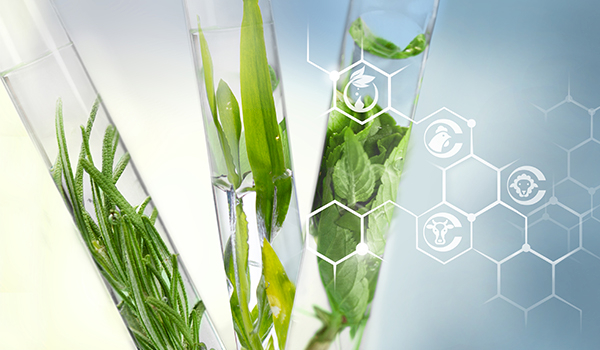Botanicals, same same but different
Part 1
It is widely known that certain plants or parts of plants can have an effect on the well-being and performance of animals. This can be purely aromatic (vanilla) to make the taste of feed and water more attractive to the animals, but there are also direct effects on intestinal health (oregano) or the respiratory tract (thyme, mint).
In general, plants and their active substances can be added to feed or drinking water in the following forms:
- Extracts: These are extracts of plants obtained using solvents such as water, ethanol or propanediol. The solvent is then removed during processing. We differentiate between liquid and dry extracts.
- Tinctures: These are alcohol-based extracts from plant materials. Manufacturing processes usually involve maceration and percolation.
- Plant fats and oils: These are extracted by mechanical processes. The plant parts containing oil are either cold pressed or extracted using solvents.
- Plants and herbs: These refer to whole dried plants or parts of plants that are then milled.
These types of processing are selected to increase the concentration of active substances in the product, to standardise the content and to remove unwanted by-products (e.g. fibres, bitter substances). The type and manner of processing are just as decisive for the quality of a phytogenic additive as the selection of the plant material, cultivation, climate and time of harvest.
The European feed law makes the following distinction for the use of plant substances:
a) Aromatic substances as feed materials: Products of plant origin in their natural state, fresh or preserved, and products of simple processing can be classified as feed materials. These are plants and herbs that are dried or ground, or result from crushing. Example: Ground oregano.
b) Aromatic substances as feed additives:
a. Chemically defined aromatic substances (substances that are chemically produced and are not found in nature. They have to be purified and have a certain degree of standardisation guaranteed by the manufacturer)
b. Botanically defined aromatic substances (substances extracted from natural plants. They must have a degree of standardisation of the active substance guaranteed by the manufacturer). Example: Oregano approved as oil or tincture
c) Zootechnical additives: Additives that have a positive effect on the performance of healthy animals or on the environment. Example: Preparations from oregano oil and other aromatic substances.
